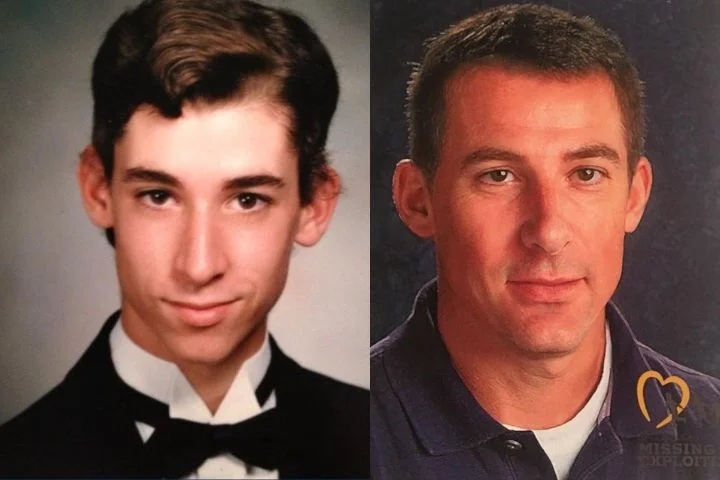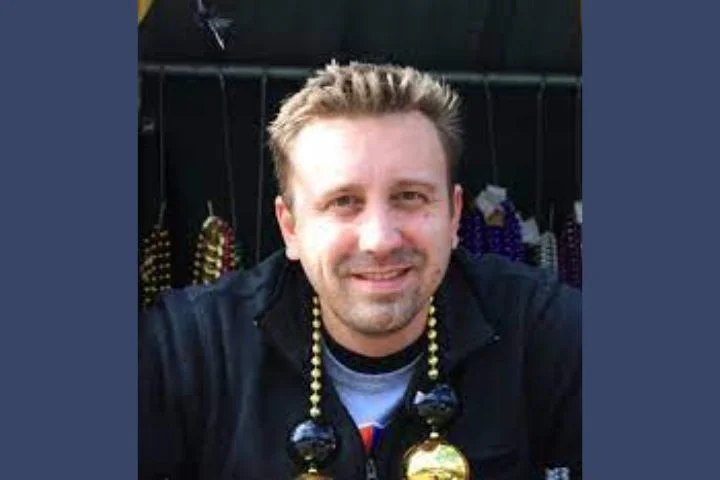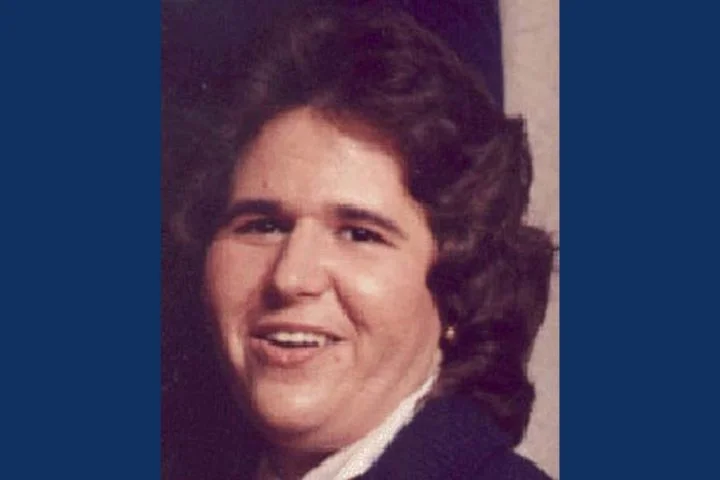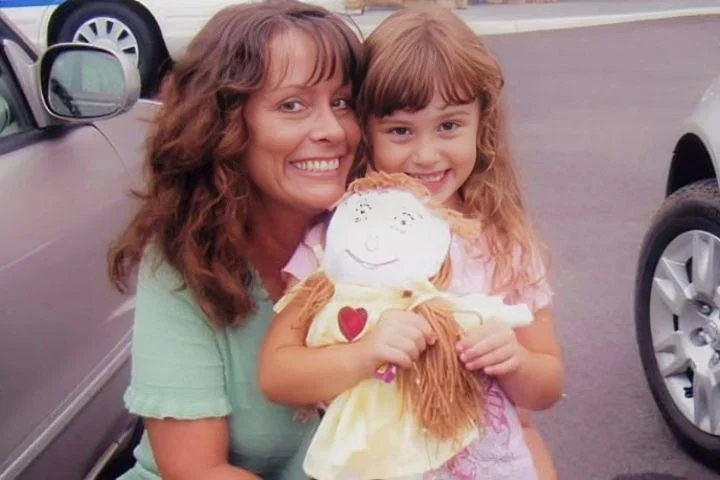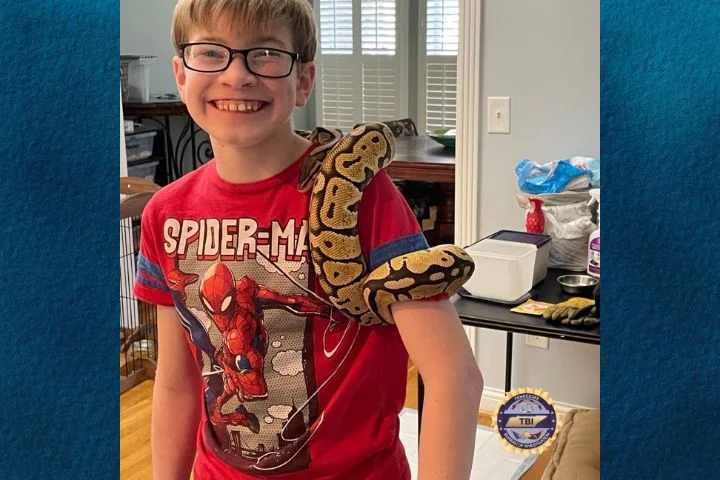Erik Patchin went to a poetry reading with some friends on the evening of Monday, May 23, 1994. After the reading, which was held at The Waterworks in Tallahassee, Florida, Erik drove a friend to her home around five miles away. It was around 2:00 am Tuesday when Erik got back into his silver Volkswagen Beetle and headed for his house in Lloyd, Florida. The drive should have taken Erik less than 30 minutes, but the 20-year-old never made it home and he was never seen again.
Employees of the Jr. Food Store on U.S. Highway 27 South noticed Erik’s Volkswagen in the store parking lot when they arrived to open the business at 5:00 am, but there was no sign of Erik. They assumed the driver had encountered car trouble and left the vehicle there overnight, so they didn’t give it too much thought.
Later that afternoon, Erik’s mother, Susan Durant, drove by the Jr. Food Store when she was on her way home from work. As she passed the parking lot, she noticed her son’s distinctive silver Beetle parked near the entrance to the store. She pulled into the lot and scanned the area for Erik but didn’t see him. She wasn’t overly concerned; like the store employees, she thought Erik’s car might have broken down and he had called a friend to pick him up.
When Susan got home and didn’t hear anything from Erik, she started to get worried. After calling several of his close friends, she realized that no one had heard from him since around 2:00 am. Fearing that something bad had happened to him, Susan called the police and reported Erik missing.
At the time of his disappearance, Erik had been a student at Tallahassee Community College, where he was majoring in English. He loved to write poetry and song lyrics, and he worked part-time as a DJ at the college radio station. He loved skateboarding and rarely went anywhere without his skateboard. Erik had no history of running away from home and was usually in constant contact with friends and family members.
Investigators learned that Erik had last been seen leaving his friend’s house on West Call Street in Tallahassee early Tuesday morning; as far as his friend knew, he planned to drive straight to his home at that time. It was unclear why he would have pulled into the Jr. Food Store parking lot; nothing appeared to be mechanically wrong with his car when it was found.
Inside the Beetle, Erik’s mother found his skateboard, a notebook he used to write poetry, and several other personal items. There were no clues to Erik’s whereabouts; he didn’t leave any kind of note in the vehicle, and there were no signs of foul play in or around the Volkswagen.
Amanda Farnsworth, one of Erik’s closest friends, said he wasn’t someone any of his friends expected to voluntarily go missing. “He’s the type of person who will call if he wasn’t going to be somewhere. He was always really concerned that his grandparents or his mom would be really worried about where he was.”
As soon as they learned that Erik was missing, his friends and relatives immediately started canvassing Tallahassee, distributing missing person flyers and looking for anyone who might have seen Erik after he left the poetry reading.
From the start, the search for Erik spanned two counties. He was last seen in Tallahassee, which was in Leon County, but he had been heading for his home, which was in Jackson County. Although there was no evidence to suggest that he made it to Jackson County, deputies from both counties participated in the search for the missing young man.
On June 3, 1994, deputies from Leon County were conducting an aerial search of Jefferson County when they discovered a field containing more than 300 marijuana plants. The find put the search for Erik on hold for a few hours while deputies concentrated on tearing down the plants and trying to determine who planted them there.
When the search for Erik resumed, deputies used dogs to try and pick up Erik’s trail but were unsuccessful. They conducted several canvasses of the neighborhood where his car was found and distributed missing person flyers to residents, but nothing they did brought them any closer to determining what had happened to Erik.
As the search stretched into its third week, Susan tried to remain optimistic about her son’s fate. “I have to believe that he is okay. That’s what’s really keeping me going…but I guess I’m just scared.” While she felt certain Erik wouldn’t have voluntarily walked away from his life, she didn’t want to contemplate the fact that he might have met with foul play.
Erik’s friend Amanda wasn’t sure what to think, noting that Erik had seemingly disappeared without a trace. “That’s the weirdest thing because he’s just completely vanished…he’s just gone. I’m completely baffled by the situation.”
One friend recalled that Erik had mentioned wanting to visit some friends who were living in Atlanta, Georgia; detectives interviewed his associates in that area but found that he had no solid plans to visit there and none of them had spoken with him since he vanished.
Leon County Detective Warren Forrest admitted that the case was a perplexing one. “I’d do anything if we could find this kid…this is one of those strange cases because generally, somebody would have seen something somewhere.” Despite an intensive investigation, detectives had been unable to develop any solid leads concerning Erik’s whereabouts.
In January 1995, Ruth Brumbley, the manager of the food store where Erik’s car was found, told reporters that she saw Erik in the store a couple of days before he went missing. She claimed he had been with people who appeared to be part of a motorcycle gang, noting that they seemed to be a “rough bunch.” Ruth said Erik had been wearing a blue bandana and seemed to be part of the gang; she also claimed police had never questioned her about Erik or the people who had been with him.
Erik’s friends and family members were surprised by Ruth’s claim. As far as they knew, Erik hadn’t been part of any sort of gang and they wondered if her sighting was a case of mistaken identity. Beth Cobb, who dated Erik for a few months after meeting him at a poetry reading, noted, “He was laid-back and fun to be with, not the kind to hang out with bad people.” He preferred his skateboard and Beetle to motorcycles, and his idea of a fun night out was going to a poetry reading.
Years went by and Erik’s fate remained a mystery. In August 2001, Leon County Detective Tony Drzewiecki told reporters that investigators had pursued several different theories about what might have happened to Erik but had never been able to prove any of them. At one point, an informant told detectives that Erik may have been shot and killed by drug dealers who hung out near the Jr. Food Store where his car was abandoned. One of the men he claimed was responsible, however, died in prison without ever admitting to any involvement in Erik’s case.
Detective Drzewiecki said that over the past several years, investigators searched in vain for Erik’s body, combing through wooded areas and diving in ponds. While they recovered several stolen cars, they didn’t find any trace of Erik. Despite the lack of evidence, he believed it was likely that Erik was dead. “We’re confident there are residents in and around that area who have first- or second-hand knowledge that could lead us to his body.”
Erik Sol Patchin was just 20 years old when he vanished from Tallahassee, Florida, in May 1994. Erik was an intelligent and friendly young man who enjoyed skateboarding and writing poetry; he was a student at Tallahassee Community College when he went missing. Erik’s car was found abandoned a few hours after he was last seen leaving a poetry reading at a bar in Tallahassee; although detectives believe he was likely a victim of foul play, they have never been able to find any evidence to back up this theory. Erik has brown eyes and brown hair, and at the time of his disappearance, he was 5 feet 10 inches tall and weighed 160 pounds. Erik was last seen wearing a black T-shirt, green shorts, and tan hiking boots. If you have any information about Erik, please contact the Leon County Sheriff’s Office at 850–922–3300.
